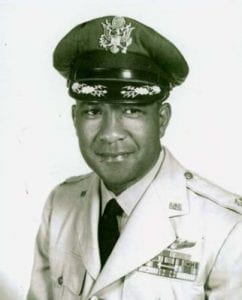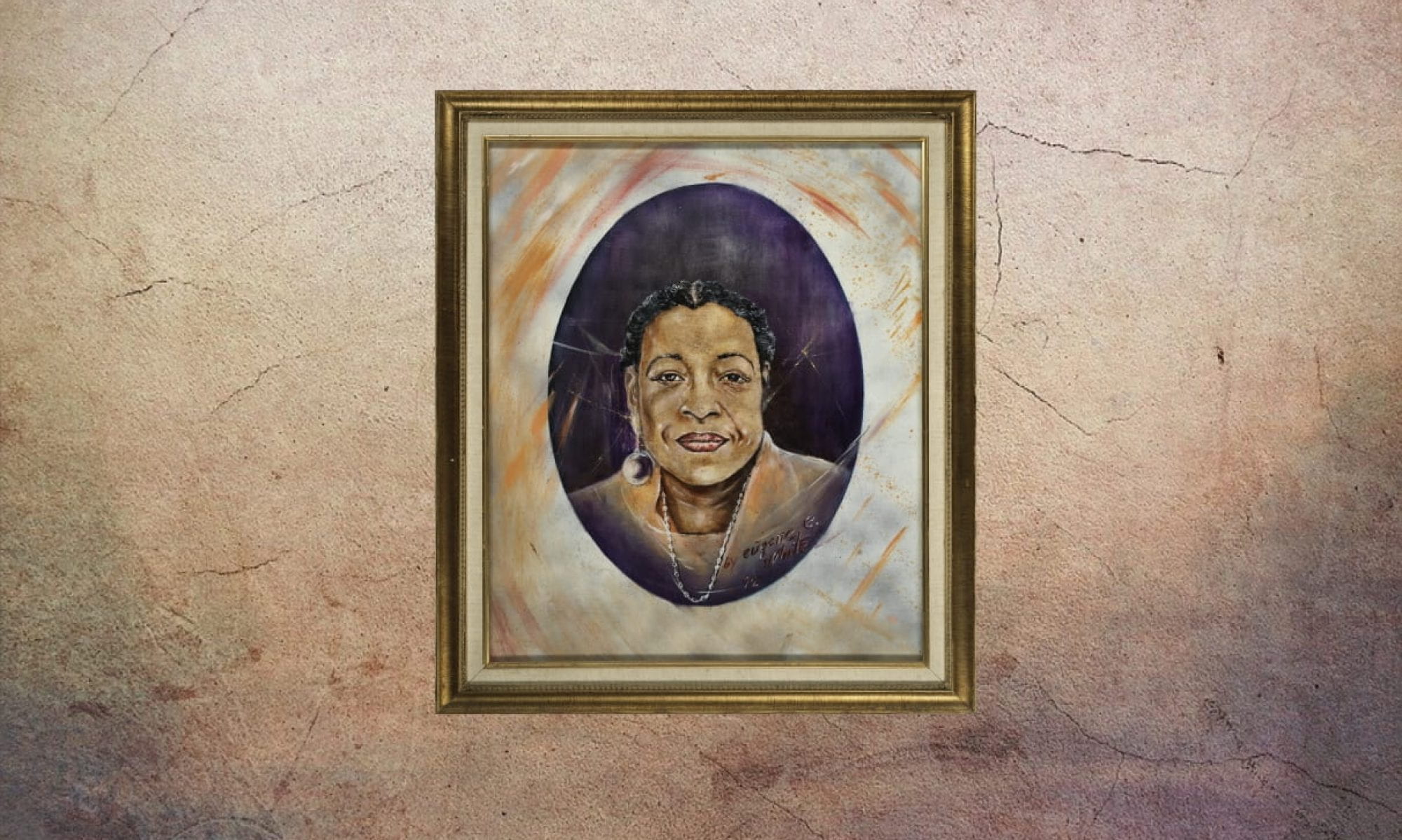
In 1942, Lieutenant Colonel Theodore A. Wilson was drafted into the United States Air Force, where he began a decorated career as a Tuskegee Airman. Through his courage and bravery, he defied the stigma of a black presence in the armed forces. Wilson’s 26 years of active duty, through World War II and the Korean War, is a unique and inspiring story that stands as a historic beacon of black excellence in the midst of the outrageous circumstances of war and domestic injustice. Wilson’s scholastic pursuits, involvement with the finance industry, and over six-decade love for his wife, Doris Wilson, exemplify his talent and devoted spirit.
Wilson was born in Gloucester, Virginia, in 1920 and served the United States Air Force from 1942 through 1944. He was stationed as an active duty pilot in the European theater. Wilson completed 60 missions during his deployment in Italy where he contributed to the extensive success of the Tuskegee Airmen, who were a group of all African-American aviators and the only fighter group to have a perfect record protecting the bombers. For context, white U.S. military pilots were not permitted to fly more than 52 missions, while African-American pilots often served more since they had less replacements. “The nine months was no bed of roses,” said Wilson during an interview, “we had 16 hour days, I flew 130 flying hours.”
At the beginning of his deployment, Wilson arrived in Cercola, Italy where he was stationed as a replacement pilot in the 99th squadron. For one mission, he was sent north along the Italian coastline to dive bomb. During the flight, Wilson fired his machine gun and dropped the 1,000 lb bomb, while shots were fired into his engine, causing the propeller to stop and start to windmill. Smoke entered the cockpit, leaving Wilson unable to read the gauges, allotting him one choice: jump. At 2,500 feet in the air, and 25 miles from ally shores, Wilson ejected himself from the plane remembering: “between the wing and the tail was only eight feet, so I had to jump from the wing and hope I wouldn’t hit the tail.”
Wilson escaped fire from the Germans by parachuting into an allies’ camp and remembers fighting with his operations officer because he wanted to rest the next day instead of flying. During an interview, Wilson jokingly said, “You know sometimes, when I was flying airplanes, I thought about my wife and I thought she’s smart— she should be over here flying every other day and letting me rest.” Starting the next day, Wilson flew 46 more missions. Wilson became a 2nd Lieutenant in his first 12 months of service, a 1st Lieutenant 13 months after, and came back to the United States as a Captain in 1945.
At the beginning of America’s involvement in World War II, Tuskegee University received a grant to train the first black aviators. This worked towards developing a class of 1,000 volunteers in America’s first black military airmen unit. The 332nd Fighter Group consisted of the 99th squadron, 100th squadron, 301st squadron and 302nd squadron. The men were trained as pilots, navigators, or bombardiers. According to the Tuskegee University Air Force Historical Research Agency, the Airmen of the 332nd had the highest success rates in escorting bombers across enemy borders in World War II. They stood unmatched by any other fighter group. The 99th squadron, where Lt. Col. Theodore A. Wilson flew, was awarded two Presidential Unit Citations between the years of 1943 and 1945, both for providing exceptional tactical air support and aerial support for the 12th Air Force in Italy. Overall, the courageous work performed by Lt. Colonel Wilson stands as historically significant in the fight towards racial integration in America because it boldly proved wrong all doubts held against black citizens fighting in the American armed forces.
Wilson also served in Korea from 1950 to 1952. During his deployment, Wilson flew 42 missions, became a Major in Korea in 1952, and became a Lieutenant Colonel in 1961. He also worked as a Chief Accounting and Finance Officer during his time overseas. Wilson was accountable for over two million dollars and 314 employees. He received an Accommodation Medal for outstanding service and payment alongside a bronze star for outstanding achievement.
Wilson retired as a decorated veteran and went off to college. He received his bachelor’s degree in sociology from Virginia Union University where he also became a finance officer and moved on to be assistant professor of the ROTC, eventually becoming the leading professor for the entire program.
Wilson went back to school before working at Bank of America for 16 years. He started as a landing officer, then moved to a training officer, and ended his career as Assistant Vice President in Contributions.
Wilson met his wife Doris Wilson in college in Virginia, where she received a degree in mathematics. Theodore and Doris had two children and received their master’s degrees in business together.
In retrospect, Wilson says, “I am proud to look back on my life and accomplishments as most Tuskegee Airmen are.” Wilson’s work as a pilot and devoted citizen will be remembered throughout history and will be treasured in the hearts of Wilson’s family, friends, and many others.
— Annelise Suleiman and Hannah Shepherd
Works Cited
Costantinou, Marianne, “Theodore Wilson—Tuskegee Airman.” SFGate. 18 Mar 2006.
Squatriglia, Chuck. “The Bay Area Farewells of 2006.” SFGate. 31 Dec 2006.
“Tuskegee Airmen Facts”, Tuskegee University. 2017.
